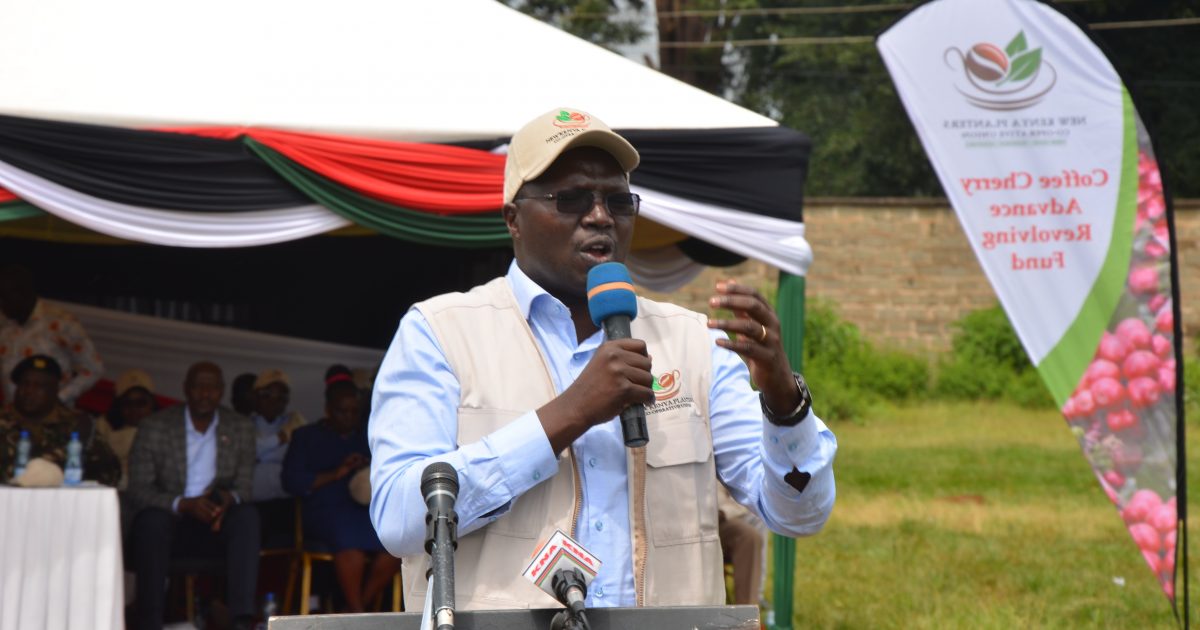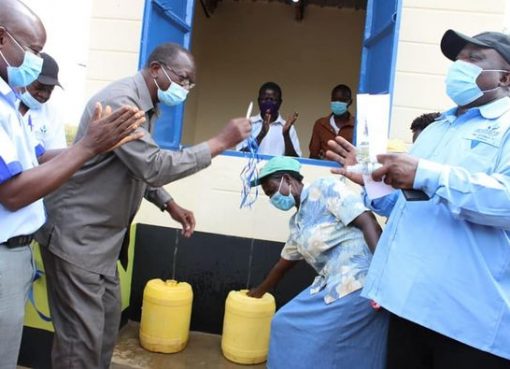The Sh 80 per kilogram Coffee Cherry Advance Revolving fund that is being issued to more than 700,000 smallholder coffee farmers in the country is not a loan, Co-operatives, Micro, Small and Medium Enterprises Cabinet Secretary Simon Chelugui has clarified.
Speaking at the Karatina stadium in Nyeri County during the fund’s distribution and sensitization program, Chelugui said the money is supposed to sustain the farmer as they await the proceeds from the sale of their cherry.
“I have heard people in some quarters claiming that the cherry fund is a loan which will be repaid with an interest. Please note it is not a loan or payment of coffee, it is an advance to the farmer. Once the coffee is sold, the difference between the selling price and the Sh 80 advance will go back to the farmers as a bonus,” said Chelugui.
The cabinet in October last year, approved an additional Sh 4 billion Coffee Cherry Advance Fund bringing the total allocation for the kitty to Sh 6.7 billion. With the increased funding, farmers will now take home Sh 80 per kilogram of cherry delivered to factories from the previous Sh20 per kilogram of cherry.
The money is aimed at cushioning farmers from poor market prices. According to the CS, the fund will be managed by his ministry and it will be administered through the new Kenya Planters Co-operative Union(KPCU) through the respective farmers’ co-operatives. Chelugui told the more than 3,000 Nyeri coffee farmers who turned up for the sensitization that the money will be availed to them in two tranches of Sh 40 each.
“Within a month of your harvesting you should get your Sh 80 but you will receive it in the following manner. Once you deliver your cherry to the pulping unit you should be given a receipt of your coffee and you are entitled to Sh 40 per kilogram,” he said.
“Secondly, once the coffee is processed and dried by the factory and delivered to the miller within three weeks and once that process is complete you receive the remaining Sh 40 per kilogram,” he said.
The CS further noted that the advance was part of the coffee sub-sector reforms that the government is instituting to ensure that the sector is self-sustaining. Chelugui said that the state was keen on resolving the four major challenges that continue to bedevil the coffee sub-sector, key among them poor returns for farmers, poor management of coffee co-operatives, debts owed by farmers and cartels.
He noted the Cooperatives Bill which is currently before the National Assembly, would delineate the roles of both National and County governments in the management and the supervision of co-operatives which have been blamed for exploiting coffee farmers.
As a way of ramping up production, Chelugui said there are also plans to increase the input subsidy fund to allow coffee farmers access fertilizers and other inputs at a discounted price. Currently, according to the CS, through the subsidized fertilizer program, the country’s coffee production had doubled from 25,000 tonnes of coffee to 51,000 tonned. Chelugui reckons that with adequate support, the country could realize 200 metric tonnes of coffee by the year 2027.
“One coffee bush is currently producing 1.5 kilograms but we will support you so that we can restore this value chain to its former glory. Through the New KPCU we have come up with a new plan to restore the farmers input subsidy programme so that our farmers can benefit in terms of inputs. With the cherry advance and the subsidy for fertilizer and farm inputs, we believe we will realize our production target,” he said.
Also present were Principal Secretary for Cooperatives Patrick Kilemi, Nyeri County Commissioner Pius Murugu, Nyeri elected leaders led by Nyeri Deputy governor Waroe Kinanire, Nyeri Senator Wahome Wamatinga, Nyeri Women Representative Rahab Mukami and Members of Parliament John Kaguchia(Mukurwe-ini), Eric Wamumbi(Mathira) and Duncan Mathenge (Nyeri town) and a host of Members of County Assembly.
By Wangari Mwangi and Samuel Maina




